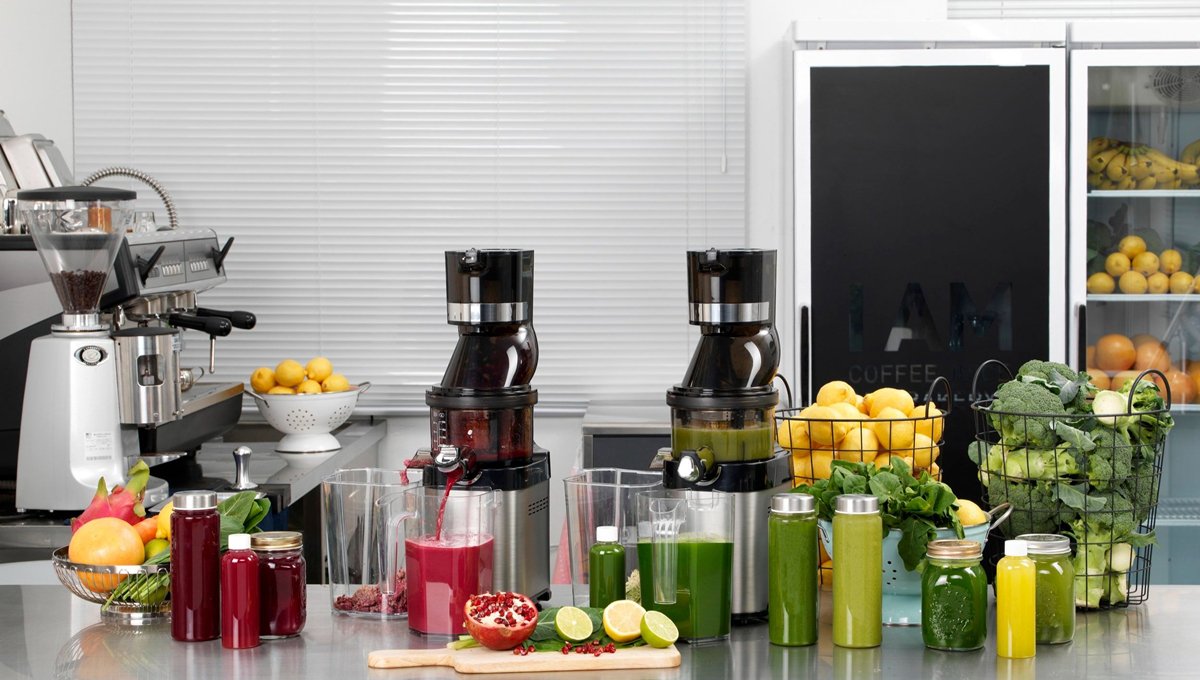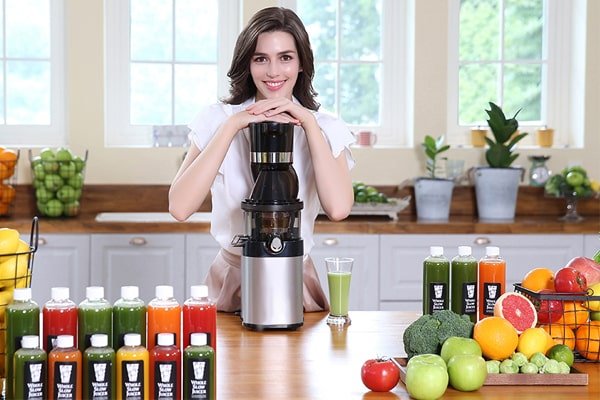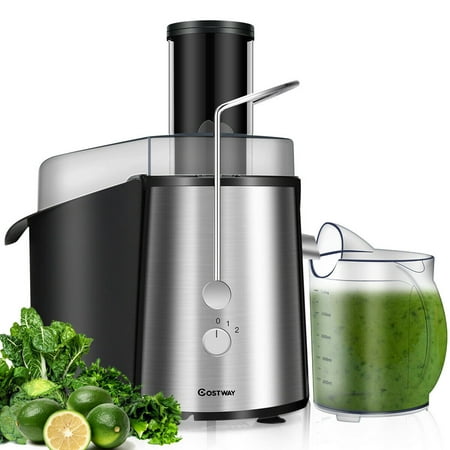
Juicing Made Simple: Exploring Cold Press and Centrifugal Juicer Differences
Hello there, my fellow health enthusiasts!
Are you on a quest for the perfect juicer that can help you extract the maximum nutrition from your fruits and vegetables? Look no further, for today, we dive deep into the world of juicers, comparing two of the most popular types: cold press juicers and centrifugal juicers.
As an avid juicer myself, I understand the importance of finding the right juicer that suits your needs and lifestyle. With so many options available, it can be overwhelming to choose the one that will provide you with the best juicing experience. That’s why I’m here to guide you through the differences between cold press and centrifugal juicers, giving you the insights you need to make an informed decision.
Whether you are a health-conscious individual or simply looking to upgrade your juicing routine, this blog post will equip you with the knowledge to choose the juicer that fits your unique requirements. So, let’s explore the world of cold press and centrifugal juicers and find out which one may be the better option for you. Let’s get started!
Cold Press Juicers vs Centrifugal Juicers | Which is Best?
Cold press juicers and centrifugal juicers are the 2 most common juicer styles in the modern juicer market. Constantly at war with ...
What is a Cold Press Juicer?
In recent years, the popularity of cold press juicers has skyrocketed as more and more people recognize the benefits of consuming fresh, nutrient-rich juices. But what exactly is a cold press juicer, and how does it work? In this blog post, we will delve into the world of cold press juicers, explaining their mechanics, advantages, and disadvantages.
How does a Cold Press Juicer work?
Crushing and Pressing
Unlike traditional centrifugal juicers that rely on high-speed spinning blades, cold press juicers operate using a different mechanism. A cold press juicer employs a two-step process: crushing and pressing.
- Crushing: Initially, the fruits or vegetables are gently crushed, breaking down the fibers and releasing the juice. This step ensures maximum extraction of juice while minimizing oxidation and nutrient loss.
- Pressing: Once the ingredients are crushed, the resulting pulp is placed into a cloth or mesh bag. Pressure is then applied to the bag, squeezing out every last drop of juice. The pressed juice is collected in a separate container, ready to be consumed.
Slow and Steady
One of the key characteristics that sets cold press juicers apart is their slow-speed operation. Instead of rapidly spinning blades that generate heat and introduce oxygen, cold press juicers work at a slower speed. This slow and gentle process minimizes heat and oxidation, preserving the integrity of vitamins, minerals, enzymes, and antioxidants present in the juice.
Advantages of using a Cold Press Juicer
When compared to traditional centrifugal juicers, cold press juicers offer several advantages:
- Higher Nutrient Retention: The slower juicing process of cold press juicers prevents heat buildup and oxidation, ensuring that more nutrients are preserved in the juice. This results in a healthier and more nutrient-dense drink.
- Better Juice Quality: Cold press juicers produce a higher yield of juice, thanks to their efficient crushing and pressing mechanism. You can expect more juice and less waste when using a cold press juicer.
- Longer Juice Shelf Life: Due to the low level of oxidation, juices made with a cold press juicer have a longer shelf life compared to those made with centrifugal juicers. This allows you to prepare larger batches of juice and store them for an extended period without compromising taste or nutritional value.
- Higher Juice Yield: Cold press juicers are known for extracting a greater amount of juice from the same quantity of produce. Their thorough extraction process leaves little pulp behind, resulting in a higher yield and drier pulp.
Disadvantages of using a Cold Press Juicer
While cold press juicers offer numerous benefits, it is essential to consider their drawbacks as well:
- Slower Juicing Process: The slow-speed operation of cold press juicers means that it takes longer to produce a glass of juice. This can be an inconvenience if you are in a hurry or have limited time in the mornings.
- Limited Feeding Tube Size: Cold press juicers typically have narrower feeding tubes compared to centrifugal juicers. This means that more preparation time is required as you need to slice or chop ingredients into smaller pieces to fit through the tube.
- Higher Price: Cold press juicers tend to be more expensive than centrifugal juicers due to their advanced technology and higher quality juice extraction. However, many users find the long-term benefits outweigh the upfront cost.
What is a Centrifugal Juicer?
Centrifugal juicers are one of the most popular types of juicers available on the market today. They are known for their fast juicing speed, ease of use, and affordability. In this section, we will provide an overview of centrifugal juicers, their operation, and their pros and cons. We will also compare them to cold press juicers and discuss their performance in extracting juice.
Operation of Centrifugal Juicers
Centrifugal juicers work by using a rapidly spinning blade to cut fruits and vegetables into tiny pieces. The juice then gets separated from the pulp through centrifugal force. Here’s a step-by-step breakdown of how centrifugal juicers operate:
- Preparation: Before juicing, you need to cut your produce into smaller pieces to fit into the feeding chute.
- Feeding: Once your produce is prepared, you can feed it into the centrifugal juicer through the feeding chute.
- Cutting and Shredding: As the produce enters the machine, a rapidly spinning blade cuts and shreds it into small pieces.
- Centrifugal Force: The shredded produce is then pushed against a mesh screen within the juicer. The centrifugal force generated by the spinning motion separates the juice from the pulp.
- Collection: The juice flows out of the juicer through a spout, while the pulp is collected in a separate container.
Pros of Centrifugal Juicers
Centrifugal juicers offer several advantages that make them a popular choice among juicing enthusiasts. Here are some key benefits of using a centrifugal juicer:
- Speed: Centrifugal juicers operate at high speeds, allowing for quick juicing. This is especially beneficial for those with busy lifestyles or limited time.
- Ease of Use: These juicers are relatively easy to assemble, disassemble, and clean. They often come with large feeding chutes, which reduces the need for extensive pre-cutting or preparation.
- Affordability: Centrifugal juicers are generally more affordable compared to other types of juicers, making them accessible to a wider range of consumers.
- Wide Range of Ingredients: Centrifugal juicers can handle a variety of fruits and vegetables, including hard produce like apples and carrots, as well as soft fruits like berries and tomatoes.
Cons of Centrifugal Juicers
While centrifugal juicers have their advantages, they also come with a few drawbacks. It’s important to consider these limitations when deciding if a centrifugal juicer is the right choice for you:
- Oxidation: The high-speed rotation of the blades in centrifugal juicers introduces more oxygen into the juice, potentially leading to quicker oxidation. This can affect both the taste and nutritional quality of the juice, causing it to degrade faster.
- Lower Juice Yield: Compared to cold press juicers, centrifugal juicers may extract less juice from the same amount of produce. This means you may need to use more fruits and vegetables to get the same amount of juice.
Centrifugal Juicers vs. Cold Press Juicers
To better understand the benefits and limitations of centrifugal juicers, let’s compare them to cold press juicers (also known as masticating juicers). Here’s a quick comparison of the two types:
| Centrifugal Juicers | Cold Press Juicers | |
|---|---|---|
| Speed | High | Slow |
| Efficiency | Lower | Higher |
| Oxidation | Higher | Lower |
| Price | Lower | Higher |
| Versatility | Wide Range | Limited |
In summary, centrifugal juicers are popular for their speed, ease of use, and affordability. While they may lead to faster oxidation and lower juice yield compared to cold press juicers, their versatility and convenience make them a great choice for many individuals.
Remember to always consider your specific needs and preferences when choosing the right juicer for your lifestyle.
Key Differences between Cold Press Juicers and Centrifugal Juicers
Juicing has become an increasingly popular way to incorporate more fruits and vegetables into our diets. With an array of juicing machines available on the market, it’s essential to understand the differences between cold press juicers and centrifugal juicers. In this article, we will explore the main distinctions between these two types of juicers and how they can affect your juicing experience.
Juice Yield
When it comes to juice yield, cold press juicers have the upper hand. These juicers extract juice by slowly crushing and pressing the fruit or vegetable against a mesh screen. The gentle crushing action helps to maximize the amount of juice extracted, resulting in higher juice yield.
On the other hand, centrifugal juicers use a high-speed spinning blade to chop the produce into fine particles. The centrifugal force then separates the juice from the pulp. While these juicers are fast, they tend to produce less juice overall compared to cold press juicers.
Benefits:
- Cold Press Juicers: higher juice yield
- Centrifugal Juicers: faster juicing process
Nutrient Retention
The preservation of nutrients is vital in juicing. Cold press juicers excel in this area as their slow extraction process generates minimal heat. The low heat production helps to preserve essential vitamins, minerals, and enzymes present in the fruits and vegetables. The result is a juice that is not only rich in flavor but also packed with nutrients.
In contrast, the high-speed spinning action of centrifugal juicers generates heat, which can cause a loss of nutrients during the juicing process. While the overall nutrient content may still be significant, this heat-driven extraction method contributes to some nutrient oxidation.
Benefits:
- Cold Press Juicers: superior nutrient retention
- Centrifugal Juicers: still retain a significant amount of nutrients
Noise Level
Considerations regarding noise level often come into play, especially for those living in small apartments or with noise-sensitive individuals. Cold press juicers operate silently, making them an excellent choice for those looking to juice without disturbing others in the household or neighborhood.
Centrifugal juicers, however, tend to produce more noise due to the high-speed spinning blade and motor. While the noise level may vary depending on the brand and model, it is generally louder compared to cold press juicers.
Benefits:
- Cold Press Juicers: quiet operation
- Centrifugal Juicers: may be noisier
Ease of Use
When it comes to ease of use, centrifugal juicers generally take the lead. These machines usually have larger feeding chutes, allowing you to insert whole fruits and vegetables without much pre-cutting. Additionally, their simple design and fewer components make cleaning a breeze.
Cold press juicers, in contrast, usually have smaller feeding chutes, requiring more prep work by cutting the produce into smaller pieces. They also tend to have more parts to assemble and clean, making the process slightly more time-consuming.
Benefits:
- Cold Press Juicers: more thorough cleaning required
- Centrifugal Juicers: easier to clean and less prep work
In summary, both cold press juicers and centrifugal juicers offer unique benefits depending on individual preferences and needs. While cold press juicers provide higher juice yield, superior nutrient retention, and quiet operation, centrifugal juicers offer faster juicing and easier cleanup. Consider these factors carefully to make an informed decision and choose the juicer that best suits your requirements.
Factors to Consider when Choosing a Juicer
With so many options available on the market, choosing the right juicer can be a daunting task. Two popular types of juicers are cold press juicers and centrifugal juicers. To help you make an informed decision, we will explore key factors that should be considered when choosing between the two.
Price Range
When it comes to purchasing a juicer, price often plays a significant role. Here’s a breakdown of the price range for cold press and centrifugal juicers:
- Cold Press Juicers:
- Entry-level models: $150-$250
- Mid-range models: $250-$500
- High-end models: $500 and above
- Centrifugal Juicers:
- Entry-level models: $50-$100
- Mid-range models: $100-$200
- High-end models: $200 and above
Maintenance Requirements
Maintenance is another crucial factor to consider, as it can affect the lifespan and usability of your juicer. Here’s a comparison of the maintenance requirements for cold press and centrifugal juicers:
- Cold Press Juicers:
- Generally require more time and effort for cleaning due to the extraction process.
- Parts need to be disassembled and cleaned thoroughly after each use.
- Some models may include specialized cleaning tools.
- Centrifugal Juicers:
- Typically easier and quicker to clean.
- Parts can be rinsed or washed in a dishwasher.
- Some models may have parts that are not dishwasher safe.
Best Suited for Fruits and Vegetables
Different juicers excel at extracting juice from various types of fruits and vegetables. Here’s a breakdown of which juicer type is best suited for different produce:

- Cold Press Juicers:
- Ideal for leafy greens, wheatgrass, and softer fruits.
- Extracts juice by slowly crushing the produce, resulting in higher nutrient retention.
- May not be as effective with harder fruits and vegetables.
- Centrifugal Juicers:
- Best suited for hard fruits and vegetables like apples, carrots, and beets.
- Utilizes high-speed spinning blades to extract juice quickly.
- May not extract as much juice from leafy greens compared to cold press juicers.
Comparison Table
| Factors | Cold Press Juicers | Centrifugal Juicers |
|---|---|---|
| Price Range | $150-$250 (Entry-level) | $50-$100 (Entry-level) |
| $250-$500 (Mid-range) | $100-$200 (Mid-range) | |
| $500 and above (High-end) | $200 and above (High-end) | |
| Maintenance | More time and effort | Easier and quicker |
| Requirements | ||
| Best Suited for | Leafy greens, wheatgrass, | Hard fruits and vegetables, |
| Fruits and Vegetables | softer fruits | like apples, carrots, beets |
By considering factors such as price, maintenance requirements, and the types of fruits and vegetables you plan to juice, you can make an informed decision that suits your needs and ensures a fulfilling juicing experience. Remember to weigh the pros and cons of both cold press and centrifugal juicers before making your purchase.
Final Thoughts: Making an Informed Decision
In conclusion, after delving into the comparison of cold press juicers and centrifugal juicers, it is evident that both options have their own set of benefits. Cold press juicers excel in maximizing juice yield and preserving nutrients, while centrifugal juicers offer convenience and speed. The choice between the two ultimately depends on individual preferences and specific juicing requirements.
Read More :
























